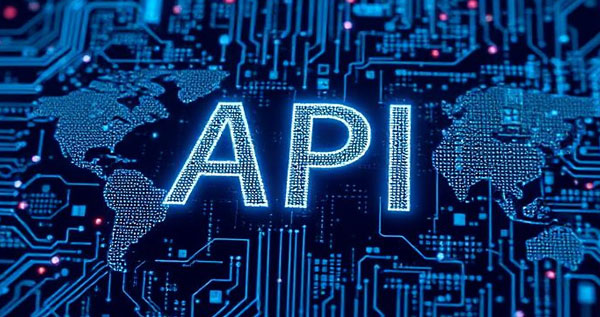E-commerce Data Collection Techniques, Proxy IP Applications, and Data Collection APIs
1. Introduction
In today’s digital era, e-commerce data has become a crucial asset for businesses to make informed decisions and stay competitive in the market. Whether for price monitoring, competitor analysis, user behavior research, or market trend prediction, efficiently and accurately acquiring e-commerce data is essential.
However, as major e-commerce platforms strengthen their anti-scraping mechanisms, traditional data collection methods face multiple challenges, such as IP restrictions, CAPTCHA verifications, and dynamic data encryption. Therefore, integrating proxy IP technology and data collection APIs has become an effective solution to enhance data acquisition efficiency.
This article provides a comprehensive overview of e-commerce data collection techniques, the application of proxy IPs, and the advantages of using data collection APIs, helping businesses and developers obtain the necessary data efficiently and legally.
2. Basics of E-commerce Data Collection
2.1 Data Collection Methods
E-commerce data collection primarily relies on web scraping techniques, which can be categorized based on different use cases:
General web crawlers: Used for large-scale data scraping, such as indexing entire websites.
Focused crawlers: Target specific keywords or websites for data collection, such as competitor monitoring.
Incremental crawlers: Collect only new or updated data, suitable for tracking price fluctuations.
Web scrapers work by sending HTTP requests to retrieve webpage data, then extracting relevant information using HTML parsing or JavaScript rendering techniques. Additionally, some e-commerce websites load data dynamically using AJAX, requiring API requests or JSON data parsing.
2.2 Anti-Scraping Strategies and Countermeasures
E-commerce platforms implement various anti-scraping mechanisms to protect their data, including:
IP restrictions: Limiting the number of requests from a single IP within a short period.
CAPTCHA verification: Requiring users to manually verify their identity to block automated access.
Dynamic data encryption: Obfuscating key data using JavaScript to prevent direct extraction.
User-Agent and headers inspection: Monitoring request headers to filter out bot traffic.
To bypass these restrictions, common countermeasures include:
Using proxy IPs to rotate request sources and avoid IP bans.
Simulating human behavior, such as randomizing request intervals and using real browser User-Agent strings.
Decrypting JavaScript encryption by analyzing network requests and extracting API endpoints.
Leveraging data collection APIs to obtain structured data directly from official or third-party sources, reducing the risk of getting blocked.
3. Application of Proxy IPs in E-commerce Data Collection
3.1 Importance of Proxy IPs
Proxy IPs play a crucial role in data collection by masking the real IP address and distributing requests through different sources. The main types of proxy IPs include:
Datacenter proxies: Provided by cloud servers, offering high speed but easily detectable.
Residential proxies: Assigned by internet service providers (ISPs), offering higher anonymity but at a higher cost.
Rotating proxies: Automatically switching IPs, ideal for large-scale data scraping.
3.2 Use Cases and Example of Proxy IPs
Proxy IPs are widely used in various e-commerce data collection scenarios, such as:
SEO monitoring: Tracking competitor keyword rankings and search result changes.
Price tracking: Automatically gathering price fluctuations from multiple e-commerce platforms.
Ad verification: Ensuring ads are displayed correctly and not being manipulated.
Brand protection: Detecting unauthorized product listings and counterfeit items.
Here is a Python example of using a proxy IP to scrape e-commerce data:
import requestsproxy = {
"http": "http://username:password@proxy_ip:port",
"https": "http://username:password@proxy_ip:port"
}
url = "https://www.example.com/products"
headers = {"User-Agent": "Mozilla/5.0"}
response = requests.get(url, headers=headers, proxies=proxy)
print(response.text)
By integrating proxy IPs, businesses can effectively bypass IP restrictions and enhance data collection success rates.
4. Application of Data Collection APIs
4.1 Advantages of Using Data APIs
Compared to traditional web scraping, data collection APIs offer a more efficient and stable way to acquire data. APIs provide direct access to structured data, eliminating the need for HTML parsing and reducing the risk of being blocked by anti-scraping mechanisms.
4.2 API Usage Example
The following Python code demonstrates how to use an API to retrieve e-commerce data:
import requestsapi_url = "https://api.example.com/product?query=iphone"
api_key = "your_api_key"
response = requests.get(api_url, headers={"Authorization": f"Bearer {api_key}"})
data = response.json()
print(data)
Using APIs allows businesses to obtain real-time product information, including pricing, reviews, and sales trends, making it ideal for competitor analysis and market monitoring.
5. Legal and Compliance Considerations in Data Collection
When collecting e-commerce data, it is crucial to ensure legal and ethical compliance. Key considerations include:
Respecting robots.txt: Some websites prohibit data scraping, and it is advisable to follow their guidelines.
Privacy policies and data protection: Avoid collecting personally identifiable information (PII) to comply with regulations like GDPR and CCPA.
Intellectual property rights: Some data may be copyrighted, so it is essential to ensure lawful use.
By leveraging proxy IPs and data collection APIs, businesses can acquire data legally and minimize compliance risks.
6. Conclusion and Future Outlook
This article explored the fundamentals of e-commerce data collection, the role of proxy IPs in bypassing anti-scraping mechanisms, and the advantages of using data collection APIs. Proxy IPs help improve data acquisition success rates, while APIs provide a stable and secure alternative to direct web scraping.
Looking ahead, advancements in AI-powered web scraping and automated data processing will further enhance data collection efficiency. However, businesses must also stay informed about evolving data privacy laws to ensure compliance and sustainable data-driven strategies.




